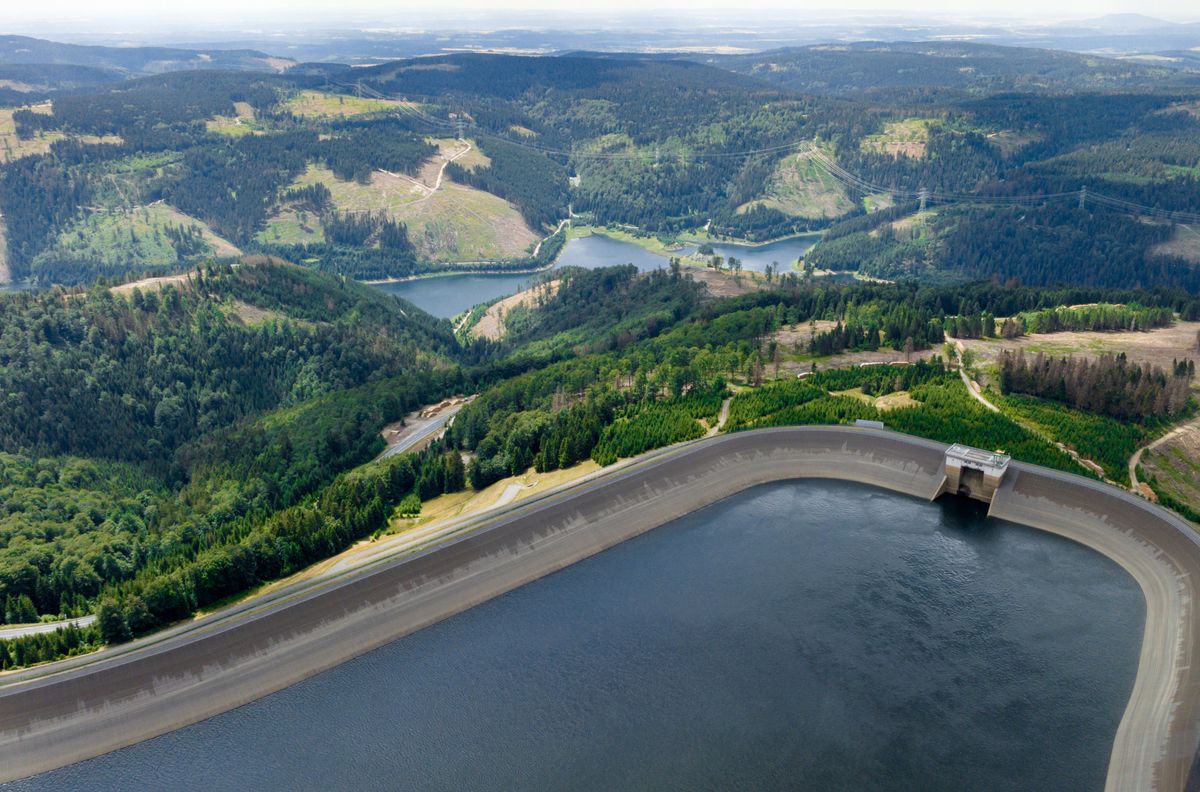CHINA – The Tseung Kwan O Desalination Plant in Hong Kong is set to become operational on December 22, providing up to five percent of the territory's overall fresh water demand. The first stage of this desalination facility utilizes advanced reverse osmosis technology, offering a stable water source that is resistant to climate change. When fully operational, the plant will have a capacity of 135,000 m3/d. The plant, in conjunction with the Pak Kong Water Treatment Works and the Tseung Kwan O Primary Fresh Water Service Reservoir, will supply drinking water to Sai Kung, East Kowloon, and parts of Hong Kong Island. (RTHK News)
MOROCCO – Metito Utilities and Tahliya Group have signed an agreement at COP28 for the development of two desalination projects powered by renewable energy in Morocco. Metito Utilities, a subsidiary of Métito Holdings, will collaborate with Tahliya to implement these projects aimed at addressing Morocco's dwindling freshwater resources due to drought. The desalination plants, will supply treated water to multi-user irrigation systems. The new plants will be powered by renewable sources such as solar and wind energy, aiming to reduce annual greenhouse gas emissions and promote sustainable desalination. (Afrik21)
ALGERIA – The Algerian Energy Company (AEC) has revealed plans to construct mobile containerized desalination plants in villages across Algeria starting in 2024. These containerized facilities, unlike standard desalination plants, will be built on demand with a daily capacity of 2,500 to 2,700 m3 each, supporting existing plants. The AEC plans a partnership to implement this initiative and, in the second phase, aims to ensure long-term viability by locally manufacturing equipment, especially filtration systems. Meanwhile, the AEC is currently constructing five seawater desalination plants in different regions with a combined capacity of 1.5 million m3 per day. (Afrik21)
EGYPT – Egyptian Prime Minister Mostafa Madbouly is considering a project proposal from the Chinese company Tian E to utilize leftover water from seawater desalination projects for mineral extraction. The proposal involves a specific technique to extract and separate minerals from the residual water. This initiative is considered in light of the expanding seawater desalination projects in Egypt. Tian E presented the project highlighting its success in extracting metals from saltwater waste. The officials estimated potential annual profits of $40 million, with a possibility of reaching $120 million with an increased number of stations in the project. (Egypt Today)
PALESTINE – The United Arab Emirates' "Chivalrous Knight 3" humanitarian operation has successfully pumped desalinated water to Palestinians in Rafah, within the Gaza Strip. The water is sourced from UAE-built desalination plants in Egyptian Rafah and transported through a newly installed 900-meter pipeline. The Palestinian Water Authority in Rafah is responsible for distributing the water within Gaza. This initiative addresses the shortage of desalinated water in Gaza, providing essential drinking water to residents and shelter centers. Three desalination plants, inaugurated as part of the Chivalrous Knight 3 operation, will desalinate about 2,728 m3/d, benefiting approximately 300,000 people in Gaza. (Zawya)
SPAIN – Estepona Council has approved a Water Infrastructure Works Plan, which includes the acquisition and installation of a containerized seawater desalination plant powered by photovoltaic panels. The proposed desalination plant, designed by Hidralia, will be constructed at the mouth of the Castor River, initially providing 20,000 m3/day with the potential for future expansion to 30,000 m3/day. The use of prefabricated modules is expected to reduce costs and installation time. The desalination plant will prioritize energy self-sufficiency by relying on photovoltaic panels throughout the water treatment process. (EuroWeekly News)
U.S.A. – The Eastern Municipal Water District (EMWD) has approved participation and cost-sharing for the Doheny Ocean Desalination Project, led by the South Coast Water District. The EMWD board's unanimous decision authorizes the general manager to enter into a cost-share agreement for the project, with EMWD contributing $2,580,000 for the procurement and design phases. The South Coast Water District serves areas including Dana Point, Laguna Beach, and parts of San Clemente and San Juan Capistrano. The Doheny Ocean Desalination Project aims to address water supply needs, and EMWD's participation signals its commitment to the initiative. The cost-sharing agreement positions EMWD to potentially receive water produced by the desalination project. (Valley News)
SCIENCE – Researchers from Cornell University have explored the potential benefits of combining pumped-storage hydropower with reverse-osmosis water purification for large-scale energy storage and desalination. Using machine-learning models, the researchers studied seawater-based systems where water pumped for storage is also used for reverse osmosis water purification. The combined system could supply electricity and drinking water for coastal communities, potentially reducing costs by 16%. The models identified optimal operating conditions that could meet the electricity demands of 1.66 million people and the freshwater needs of 11.6 million people. The study aims to develop a real-world demonstration project, optimizing design and operations before construction. (IEEE Spectrum)

Aerial view of a pumped storage hydropower station showing the upper and lower reservoirs amidst forests and hills. Credit: Michael Reichel/DPA/AP
SCIENCE – A research team led by Professor Yongwon Seo at UNIST has introduced an efficient method for desalinating seawater using hydrate-based desalination (HBD) technology, offering potential breakthroughs in eco-friendly freshwater production. The HBD technology is known for its low-energy solution and suitability for treating high concentrations of brine or contaminated water. The team experimentally measured the thermodynamic properties of cyclopentane hydrate and proposed a novel calculation method to predict temperatures maximizing desalination efficiency. They developed a thermodynamic relational equation to identify optimal temperatures for maximum efficiency based on brine concentration. The study aims to optimize energy consumption in high-concentration brine treatment processes, applicable not only to hydrate-based desalination but also freeze-type desalination technology. (Phys Org)

